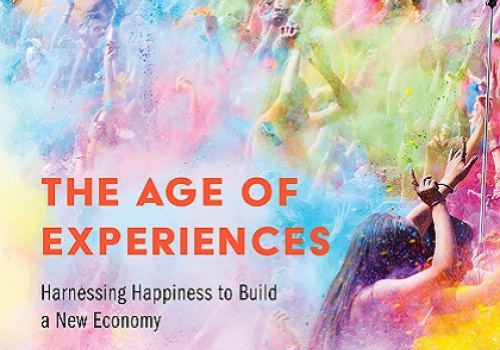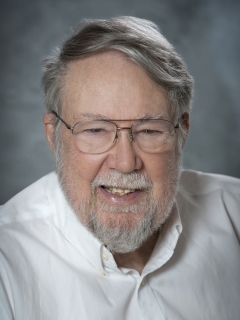
Professor Benjamin Kline Hunnicutt joined the University of Iowa’s department of Leisure Studies in 1975 as a trained historian. With expertise rooted in American history and the then controversial topic of leisure in the 1920s and 30s, Dr. Hunnicutt’s research and teaching is centered on the importance of leisure and how it, not work and career, is the basis of democratic culture and society.
As Leisure Studies departments at universities around the world have evolved, so has Dr. Hunnicutt and his interests. Travel, tourism, and experiences, as a scholarly topic and growing economic industry, have blossomed. With the growth of these endeavors, which many individuals and families fill their leisure time with, Ben’s interests and research has advanced as well.
The byproduct of Dr. Hunnicutt’s professional transformation is his recently published book, The Age of Experiences; Harnessing Happiness to Build a New Economy. When asked about what he found most enjoyable about the project, Ben replied,
"Being able to explore other disciplines, such as economics, psychology, and neurobiology, and discovering what researchers in these fields have recently learned that has relevance to the study of leisure and to the profession of sport and recreation management. But above all, to be able to “ground” the vision of humane and moral progress that has animated my research and writing for over 45 years, grounding this vision in very real, recent economic developments and new research discoveries made by the fields listed above."

The book meticulously discusses how B. Joseph Pine II and James H. Gilmore’s experience economy can help recalibrate society’s priorities and improve quality of life. Increasingly, and as a related topic, researchers are interested in happiness and its driving forces. In The Age of Experiences, Dr. Hunnicutt proposes that a societal shift away from material goods and toward experiences through leisure can lead to a happier and healthier world. Furthermore, this progress can lead to new opportunities for sport and recreation management graduates within the experience economy.
On what Ben hopes readers will take away from the book, he says,
"I would like to share a vision, and suggest a realistic way to implement that vision. It is a traditional vision of human and moral progress—progress beyond work, the economy, and politics—that animated so many people in the USA before the last 30 or 40 years that I want to recover – to present once again. The confident expectations that progress would entail our getting better at living together freely – of being increasingly able, as Msgr. John Ryan wrote, ‘to know the best that is to be known, and to love the best that is to be loved,’ and to center our lives on these free things – that is the primary goal of my scholarship and teaching."
In his role as professor and instructor, Dr. Hunnicutt understands his opportunity to influence aspiring sport business professionals and recreation practitioners and assist them in positively contributing to what he has come to call “the forgotten American dream.” Dr. Hunnicutt shares,
"I hope the book will put UISRM students and the sport and recreation management profession ahead of the curve – making it possible for them to act as innovators with a vision to lead the practical recovery of the forgotten American dream in their jobs – leading the advance of humane and moral progress in an opening realm of freedom. I believe the new experience and transformation economies are the wave of the future – we are now at the very beginning of this wave – sort of like the early pioneers in the computer revolution.""Also, I try to make it clear in my writing and teaching, that work and jobs can surely be the source of happiness and fulfillment. The problem is the new religion of work that expects work to fulfill our human potential. This recent, less than 100 year old, overemphasis on work has obscured Walt Whitman’s vision of higher progress. Work as an end in itself rather than a means to more important things is the problem, for which the forgotten American dream is the remedy. Work, subordinated to other more important, freer human pursuits such as experiences, is the key to its perfection."
In closing, Ben asked to share this passage from The Age of Experiences,
"This book also provides a historical context for the experience and transformation economies and the eudaimonic technology. It also proposes once again the nearly forgotten vision of liberation capitalism as the practical, economic realization of what Whitman called higher progress—of the forgotten American dream that was centrally important in American history before the mid-twentieth century. Even though the dream has remained dormant for decades, it may now reawaken through introduction of the age of experiences."
"One of the primary purposes of my teaching, research, and writing is to show that there is a reasonable, moral, historical, and inspiring alternative to work and wealth without end. I write and teach hoping that, in some small way, I might contribute to the rekindling of that forgotten dream."